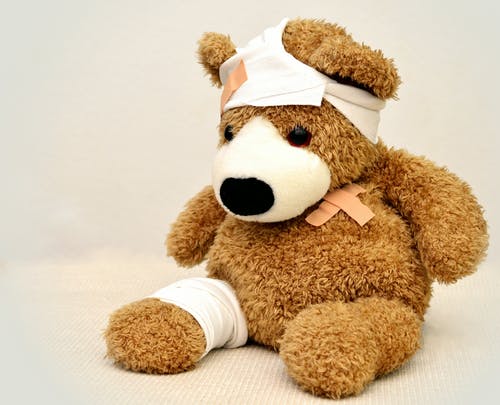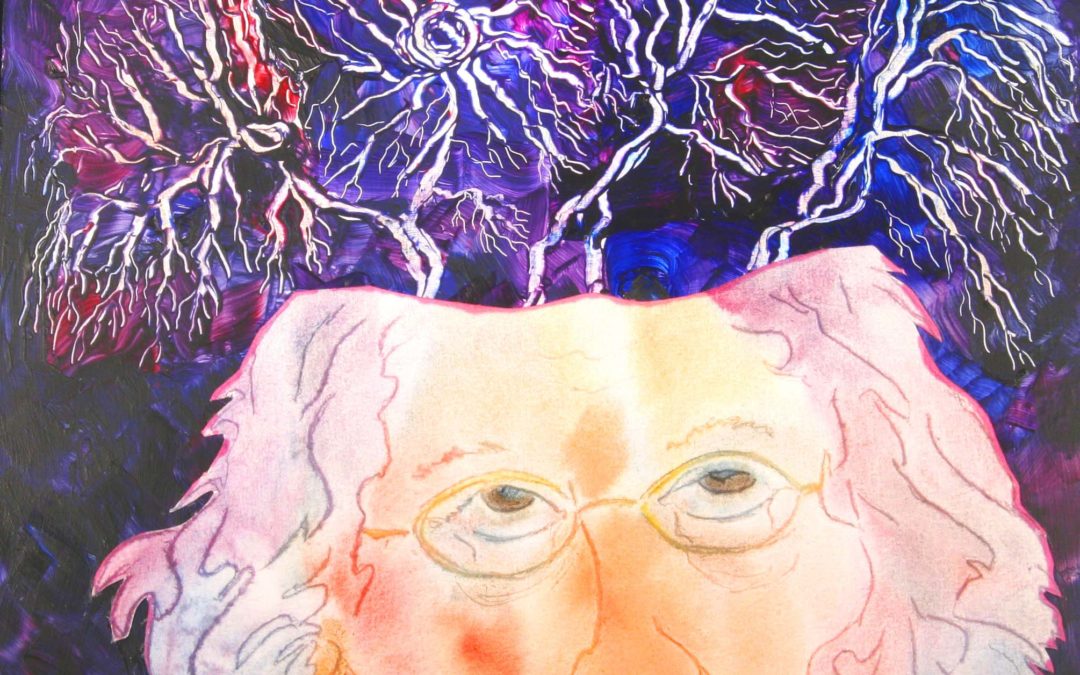
Dec 18, 2019
As you prepare for retirement, you might want to reconsider your living arrangement. Do you own your own home – a single-family house, duplex, townhouse, or condo? Do you rent an apartment? How long have you lived there? How attached are you to this home?
When you no longer commute to a job, you could live anywhere, at least in theory. You may start asking a variety of questions about:
- the right size house to own if children no longer live there. Perhaps you can take some equity out of the house so that you can invest it to produce more income to live off.
- the optimal climate to live in.
- the distance to live from (grand)children, parents, other relatives, or friends.
Staying in your own home may make the best sense. And why not? It is substantially easier to continue having the same activities with the same family and friends in the same location than it would be to start over. If you stay put, you can change your life without changing your location.
If you love to garden—this could be a time when you really have time to work in the garden. If your house is “too large”—you could use some of the extra space for your hobbies—or for entertaining your grandchildren or other guests. You have spent time fixing up your home—this could be your best time to enjoy it.
Furthermore, if you stay, you do not have to go through the process of moving. Moving requires going through all of your stuff, deciding what to keep, give away, or sell. Packing is a huge job. And if you downsize and move to a smaller place, there are a million tough decisions.
One reason people move after retirement is that they are concerned about health needs—present and future. If you are looking ahead to a time when your capabilities become diminished, there can be challenges for living in your current home. For example, if your home has multiple levels and stairs—there might come a time when you won’t be able to negotiate stairs. Would you feel isolated in your current home? Do you have relatives, friends, or neighbors who would help you if you were ill or disabled?
If you are in your mid-sixties or early seventies and in reasonably good health, the issue of future disability might not be a consideration—at least for now. Here is what you might do to feel and be secure and to be functioning at a high level in your own home, even as you face the challenges of aging.
Make sure that you are comfortable using a computer and your smart phone. Here is how they can help.
- Getting around if you are not able to drive. There are now Uber and other ride hailing services that you can call on your smart phone.
- Ordering food and most retail products over the internet to be delivered to your home. There are firms that will pick up and deliver your laundry.
- Socializing by talking to people at a distance through telephone, email, Skype or Facetime.
- Robots contain computers. They can be programmed to clean your floors and even provide companionship.
Keep up your health.
- Modify your home to prevent falls. There are devices you can install. You can reduce the reliance on steps if needed. If you are not sure what to do, there are professionals who can help. A new professional degree in this area is the CAPS, Certified Aging-in-Place Specialist.
- Use home health aides when appropriate. They can monitor health and dispense medications and treatments as needed.
- When you are home alone, keep a device at hand that will summon help if you fall or are in danger.
In my next blog, I’ll address the reasons why you might consider moving before or in early retirement.

Oct 10, 2019
“You may tend to remember predictions you made that worked out well but forget those that did not.” From Serious About Retiring, Temuna Press, 2019, p. 167
Predicting is easy. Being right is hard.
When something bad happens in your health, do you assume that your new situation is the new normal? Or do you think that the situation will get even worse? Or are you likely to feel that things will go back to normal?
Your answers to these questions will have a profound effect on how you think about and plan for your future years in retirement. For example, problems with pain or mobility might encourage you to think shorter-term than necessary and thereby miss much of the positive impact of a longer life.
Through the years as I age, I have seen the full range of outcomes in my own health. I am frequently surprised. Sometimes pains, such as in knees or hips or other places, develop. I am convinced that it is the beginning of the end. But it isn’t. They go away. Maybe they will return or maybe not. On the other hand, small things can get big and must be dealt with immediately.
There is an adage attributed in part to Cicero in 45 BC and also to the lesser-known playwrights Norton and Sackville in 1561. It is: “Hope for the best, but plan for the worst.” I think that there is more to it than that. The adage should also include “and do what you can.”
Here are some ideas on what you can do to manage your future health. They will not happen on their own – you need to make them happen.
- Improve your diet and exercise programs. Stop harmful behaviors (e.g. drugs, smoking, excessive pain killers and alcohol.)
- Monitor your health frequently, perhaps quarterly, to identify problems before they get big and hard to fix. This could include measuring metabolites at least annually.
- Work closely – actively and regularly – with your physician and other professionals on your health. You can use Google to help you formulate the questions to ask, but the Internet is not a substitute for the substantial skills and practical experience that professionals have in diagnosis and treatment.
- Get recommendations and referrals from your physicians to others that can help diagnose problems and improve your general health.
- Make sure that you have accountability partners to keep you on track and facilitate change.
Even with all of these you will have health challenges. There are no guarantees, except that you will eventually die. Even so, a commitment to managing your health now may lessen the chances of premature bad outcomes and could improve the quantity and quality of your future life.

Sep 4, 2019
Sometimes I meet people who are stressed out about their investments. They are concerned about possible imminent declines in their investment values or even future returns not living up to past performance. The lurking fear is that they will not have enough money to accomplish what they want to in their retirement. The risks they face may be substantial. The stakes are high, and the dangers are real.
Retirement can heighten the risks you have. Investments that have fallen in value may not have time to recover before you need the money. You may be more dependent on investment income because you no longer have paid work.
Here are three important tools you can use to address your concerns.
Get educated and take a long-term perspective. Newspapers and other media work hard to sell their services. Frightening, even alarming, news tends to sell. Acting on short term advice can too easily lead to getting whipsawed – selling low and buying high. Reacting to current events in this way can be expensive in time and money.
To put things in perspective, find out the research – what has really happened in the past. For example, the media have recently been sounding the alarm about the “inverted yield curve,” when short-term interest rates are higher than long-term rates. Yes, the research says that an inverted curve has frequently preceeded economic downturns. But a sour economy does not necessarily cause stock prices to fall. Thus, the yield curve might or might not be an issue for investors.
Where can you get good research to gain perspective? Not from marketers but from researchers who publish in peer-reviewed academic journals and professional advisors who are familiar with the research.
Concentrate on actions, not outcomes. You may be particularly concerned about how things will turn out. And you may not be able to control the outcomes of what is happening. However, you may still be able to take action. Concentrate on planning for and managing evolving situations. Prepare and get help as needed.
Talk things out. Talking can you give you both emotional and practical support. If you talk with an expert, you can get practical ideas that you can put to good use.
There are certainly no guarantees that situations will develop as you want them to. But preparation and management will help you in two ways. First, your actions may well lead to better outcomes. Second, you will feel more in control of your life, which in and of itself will build self-confidence and more constructive actions.

Jul 10, 2019
In her recent book Later Is Too Late: Hard Conversations That Can’t Wait, Susan Covell Alpert tells what she learned after the death of her husband and also from observing the deaths for other couples. This is a difficult topic to address but a very important one.
I found the book title itself to be provocative. What is absolutely essential to have in place?
The essential items are insurance or legal documents. After all, you have to purchase fire insurance before your house is on fire or life insurance before you are on your death bed. You can create or change legal documents only when you are “of sound mind.” Since you do not know when a fire will happen or your life or the integrity of your mind will end, it is critical to take care of these issues before it is too late. So although these issues may not seem to be urgent, they are. Timing is important.
There are quite a number of very, very helpful things to do, in order to prepare for the unbearable grief from a major loss. Death generates a huge amount of paperwork, emails, and telephone calls. At a time when you need to make many decisions, your grief makes it difficult to think straight.
The norm is to have a mix of emotions including stress, fear, anxiety, and exhaustion. These can lead to personal neglect. To cope with the extremely stressful situation Alpert offers the following recommendations:
- Have a support network of professionals, friends, and family you can lean on—people you know well and who know you. They can help you think straight. Without this close network, you will be relying on strangers.
- Ask for and accept their help. This may not be easy to do but is critical.
- Take care of yourself. Otherwise nothing else will work.
It’s not really possible to be fully prepared to handle the emotional parts of your loss. Even so, there are many things you can do to lessen the stress and burden in the aftermath. It will be helpful:
- to know what financial assets you own, where they are, and how they work
- to know your passwords
- to have made funeral plans ahead of time
Putting these off will lead to larger problems later. Having your support network available ahead of time will be enormously helpful.
Many couples divide household responsibilities so that each does more of what they enjoy and are good at. When there is only one of you, you have to take over the responsibilities of the other person. This can be easy or difficult depending on how much training each of you does of the other one ahead of time.
My wife and I have specialties – she does the cooking and I do the financials. So we have plans to do some teaching of each other. She has offered to give me cooking lessons, and I will teach her the basics about tax preparation. Sooner will be better.

Mar 6, 2019
Use it or lose it. If you don’t exercise, your muscles could atrophy. But the good news is that if you start to exercise, even at an advanced age, your capabilities can increase. You may even end up stronger than you were when you were younger. With regular exercise, you will have more energy and be less at risk of falling.
The same is true about your mind. As difficult as it is to lose some physical capabilities, it is even more serious to lose your mind. Alzheimer’s and other forms of dementia are associated with advanced age. But recent research suggests that education, work, and active leisure can slow down the loss of mental capabilities and postpone the symptoms of Alzheimer’s. New experiences of all kinds stimulate the brain: solving puzzles, learning a language, memorizing music or a poem, engaging in hobbies, volunteer activities, travel to new places, taking classes…
Some universities, like the University of Minnesota, permit those over 65 to take any class there in person for free, as long as there is space and you do not need the college credit. Some universities also offer MOOCs, Massive Open Online Courses, over the internet some without charge – so you don’t have to leave your home.
When we learn, we grow dendrites—these are the nerve connections in the brain. This happens when we’re old, as well as while we’re young. So if we keep learning, we grow dendrites. My wife, Lucy Rose Fischer, in her book, I’m New at Being Old, imagines that because she’s always learning, she grows lots and lots of dendrites—so she has dendrites, like tendrils, popping out of her head. (See her illustration with this blog.)
The old paradigm to describe the life stages was the three-boxes-of-life model. When you are young, you learn – so that you will have the tools to work and support yourself later on. Then there is the working stage of life where you earn a livelihood and support yourself and family. Finally comes the playing stage where you are rewarded for a lifetime of work by not having to learn anything or work.
Now we celebrate a more integrated life. We need to learn, work and play at all stages of our lives.
Just like physical exercise, mental exercise works best if you push yourself. Two activities with the best reputations for challenging your mind are learning a foreign language and learning a musical instrument. Yes, both of these are more challenging as you age because of the decline of some types of memory. But both of these may be more effective precisely because of their challenges.
You might believe that retirement is not a time for challenges or goals – that it is a time to relax and have fun. But learning is fun at all ages!
What makes you curious? What do you want to learn? How are you going to make your dendrites grow?

Jan 22, 2019
After my heart attack in 2000, my doctor said, “It’s simple – exercise or die.” When my father was 40, his doctor told him to stop smoking or die. My father wanted to live and he was a person of strong determination. He stopped smoking (cold-turkey) and lived a very successful life for another 50 years.
We all know the “rules” for a healthy lifestyle. We should eat properly and get plenty of exercise. This is simple advice but certainly not easy to do. Most people fail, at least at first. In fact, there are whole industries designed to help people achieve their “simple” objectives.
Here are some of the approaches that have worked for me in the past that I am sharing with you.
Partners
My physician, a nutritionist, and a personal trainer all have been exceptionally helpful in providing information, advice, accountability, and support. Friends have also been supportive.
A few years after my heart attack, I realized that I needed an outrageous goal to keep me motivated. I decide to bike the entire Mississippi River. I asked my friend Charlie if he would like to do this with me. “Sure,” he said. We planned to accomplish this in one-week intervals over a period of years. I also announced to other friends what we were planning to do. Over the next six years, they would ask me periodically, how was it going? They held me accountable. It was sometimes hard—Charlie and I biked in all kinds of weather. But we did it together—and we made it!
Measuring
Whatever you measure keeps you focused. A year after my heart attack, I was diagnosed with Type II diabetes. My physician orders quarterly measures of my average glucose levels. But a measurement of the last three months looks backwards and is not particularly helpful in motivating me to change my day-to-day behavior. So in addition I measure my weight and glucose levels daily. This provides ongoing feedback and accountability for how I am doing and encourages me to tweak my behaviors.
I also measure my exercising and my cello practicing (I like numbers). Both measurements help motivate me to make progress.
Heart disease and diabetes are both serious conditions. I can’t make either disease go away. But I can control my response to help manage these conditions. For me, having partners and measurement are both important and useful.
I understand that my life is finite—no matter what I do to preserve my health. But it is my hope that I will continue to have energy for an active, fun and fulfilling life along the way.
I wish the same for you—a great retirement with good health and the energy to do all that you want.






